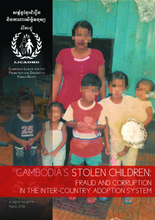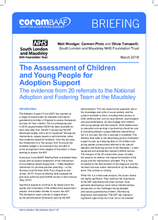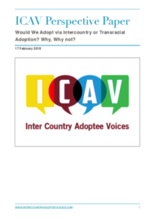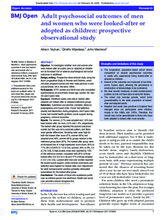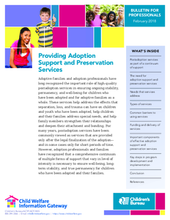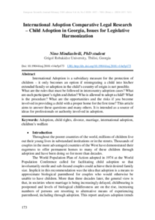Displaying 301 - 310 of 660
This report from the Cambodian League for the Promotion and Defense of Human Rights (LICADHO) presents the stories of three Cambodian women whose children had been adopted overseas at different times over the last 15 years and exposes corrupt and fraudulent practices in Cambodia's Inter-country adoption system.
This study investigated the relationship between congenital conditions and post-adoption mental disorder diagnosis and treatment in 235 female youth who were adopted from China about 15 years prior.
This ethnographic study of a foster care adoption program shows how board payments elicit commodification anxiety at this local site, and in American culture more broadly.
This Briefing Note adds to the developing picture of adoption support issues by analysing data on 20 children and young people consecutively referred to the special adoption and fostering service at the Maudsley – a wellrespected and established national CAMHS service.
This study aimed to test the impact of parents' evaluation of expectations on their child's behavioral problem by investigating a sequential mediation effect of parenting stress and parental satisfaction.
This perspectives paper from InterCountry Adoptee Voices (ICAV) includes statements from a group of international adoptees in response to the question: "Would you adopt via Intercountry or Transracial Adoption? Why, why not?
This chapter raises questions about the use of unregulated websites and the commodification of children that seek forever families, how far adoption in the digital age will be further redefined remains to be seen.
The objective of this study was to investigate whether men and women who were looked-after (in public care) or adopted as children are at increased risk of adverse psychological and social outcomes in adulthood.
This bulletin draws from available literature and practice knowledge to summarize key issues related to providing effective services to support the stability and permanency of adoptions.
This article aims to international adoption in Georgia. It is intended as a source of ideas for professionals or authority involved in adoption.

